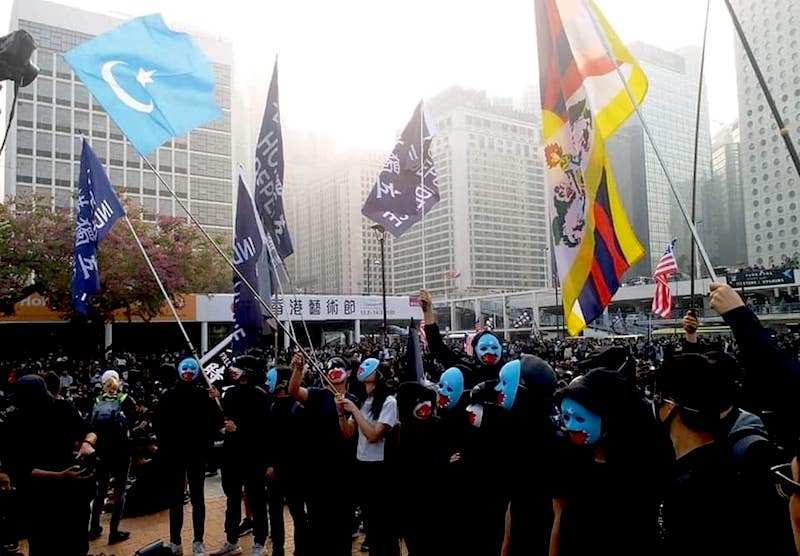 Uyghurs
Uyghurs Xinjiang is another Bangladesh waiting to happen, says activist Lily Harding
New York: Activist Lily Harding feels that Xinjiang region in China is likely to become another Bangladesh (read get liberation like Bangladesh got in 1971) as the people of the area dread Chinese Communist Party control and yearn for a stable democratic republic.
In an opinion piece in The Kootneeti, the activist wrote: "The people of East Turkistan wish to be able to live their lives in peace."
The activist said the world needs to help the people of Xinjiang to create a better future for themselves.
"Most of the world has turned their backs on them for the promise of Chinese money. We need to help them build a better future," the activist said.
"East Turkistan is likely another Bangladesh waiting to happen, with a population that dreads CCP control, and yearns for a stable, democratic republic. This would also give India a better neighbour than China," Lily said.
She made the remark referring to the Bangladesh Liberation War and its liberation in 1971 from Pakistan's control.
The activist said: "Uyghurs throughout Chinese occupation have been difficult colonial subjects for the Chinese Communist Party to control. The CCP has maintained control over the Han Chinese people by associating their identity with the Chinese Communist Party."
"They convinced the Chinese people that any criticism of the party was a criticism of their nationality and by extension themselves personally. Uyghurs did not associate themselves with Chinese identity and thereby felt no personal connection to the party. China sees this as a threat to their control of the region," Lily wrote.
The activist said the CCP turned the entire region where Uyghur stay into a highly controlled, open-air prison.
"Facial recognition cameras were put up every six to ten meters pointing in multiple directions," Lily said.
Support Our Journalism
We cannot do without you.. your contribution supports unbiased journalism
IBNS is not driven by any ism- not wokeism, not racism, not skewed secularism, not hyper right-wing or left liberal ideals, nor by any hardline religious beliefs or hyper nationalism. We want to serve you good old objective news, as they are. We do not judge or preach. We let people decide for themselves. We only try to present factual and well-sourced news.







